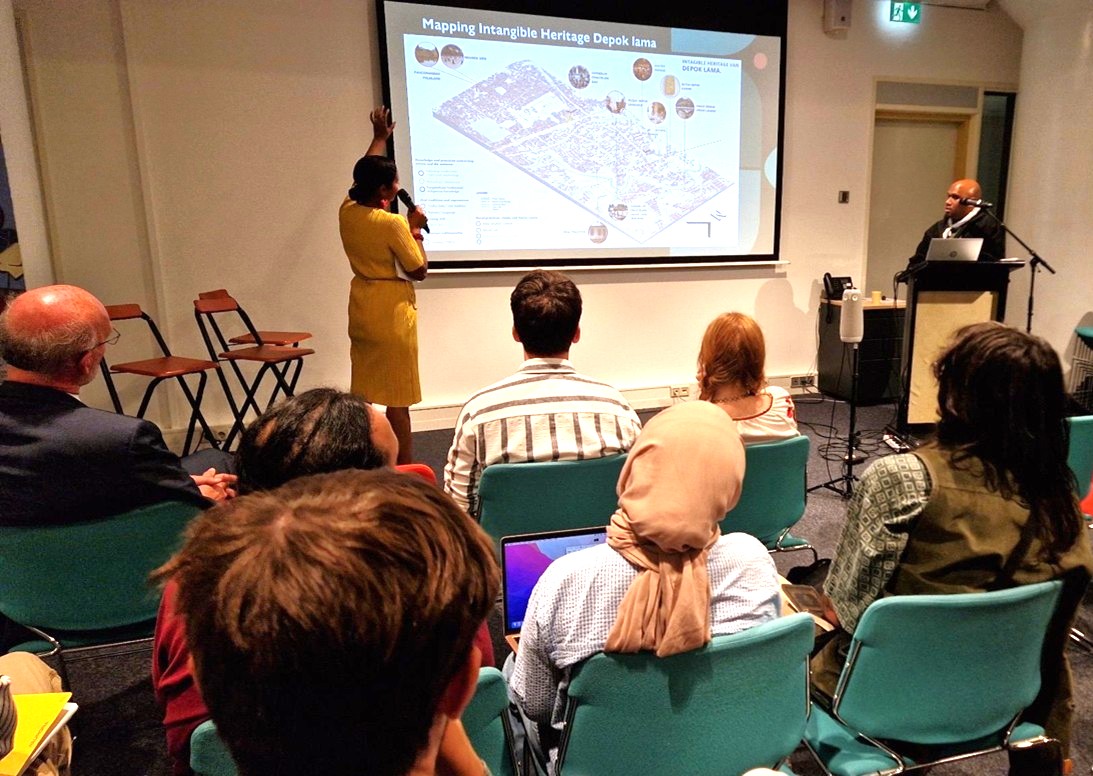Depok: A Story of (Im)material Heritage of Slavery
Upon Cornelis Chastelein’s death in 1714, the 200 individuals who had lived their lives in slavery on the pepper plantation of Depok (West Java) begot their freedom, as well as collective control over the land. This exceptional and relatively unknown story of humanism, slavery, and landownership was the topic of the seminar Depok: A Story of (Im)material Heritage of Slavery, which took place at the IISH on the 22nd of July 2025.
Four enthusiastic speakers explored different aspects of this history, each drawing on their expertise. Jan-Karel Kwisthout, himself a descendant of one of the freed enslaved families, presented a comprehensive historical narrative of the town of Depok, located about 35 kilometres south of Jakarta. He introduced us to the figure of Chastelein whose humanist vision formed a set of Christian social rules that the now-free individuals in Depok were to adhere to for them to be allegeable for a claim to the land. Kwisthout elaborated on the place of origins of the enslaved people, such as Bali, Bengal, Makassar, Surabaya, and the Coromandel Coast, and the opposition they faced from the Dutch East India Company (VOC) that was unsurprisingly unsympathetic towards their land claims. But he also propelled this history into the 19th, 20th and 21st centuries by sketching the life trajectories of the Depok Lama community through the imperialistic times characterized by missionary activity and World War II, to today’s urbanization.
Thereafter, Sherlien Sanches and Lukas Eleuwarin from the Dutch Centre for Intangible Cultural Heritage (KIEN) focused on the heritage of Depok in contemporary times by presenting their project – a joint effort with Dutch Heritage Agency (RCE) – on intangible heritage of Depok Kota (the wider, recenty developed city) and Depok Lama (Chastelein’s plantation plots). They shared with us stories of collaboration with local students and inhabitants, and the oral histories that still circulate within the communities living in Depok. Wrapping up the event, we were honoured to have Prof. Dr. Bambang Purwanto (Gadjah Mada University, Yogjakarta) reflect on the presentations and the significance of Depok in a larger story of slavery in the Atlantic and the Indonesian Archipelago. The story of Depok, he insisted, is not just obscured in a story of Transatlantic slavery nor in Dutch memory; it is vital for the Indonesian history of slavery to incorporate the exceptional story of Depok as well.
All in all, the importance of storytelling is one of the main take-aways of the event. Storytelling is one of our best chances to make silenced histories be heard again, whether they pertain to the unfolding of a history anchored in personal or collaborative communal heritage and memory-making, or nationalistic or academic discourses. We sincerely hope that this event has contributed to this storytelling by providing a platform for the oral history of Depok to be told, shared, and amplified.
For more information about our team and projects, see voices.iisg.nl.
Written by Britt van Duijvenvoorde and Pascal Konings.



